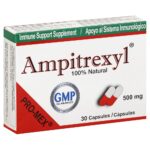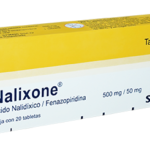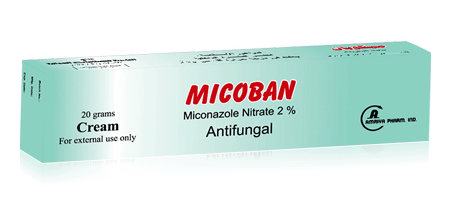Dolo Neurobion Injection: Uses, Side Effects, Warnings

Dolo Neurobion Injection is a medication that contains Procaine Hydrochloride, Vitamin B1, Vitamin B12 and Vitamin B6 as active ingredients. Dolo Neurobion Injection works by metabolizing carbohydrate thus maintaining normal growth; producing antibodies and hemoglobin by keeping blood sugar level in normal range; treating vitamin B12 deficiency; losing the feeling in the skin and mucous membranes.
Dolo Neurobion Injection is used for Neurological disorders, Thiamine deficiency, Heart problem, Neurological disturbances, Mental problems, Anemia, Convulsions, Pregnancy complications, Homocystinuria, Vitamin b12 deficiency and other conditions. Dolo Neurobion Injection may also be used for purposes not listed in this medication guide.
How Dolo Neurobion Injection Works
Dolo Neurobion Injection provides a synergistic effect on a number of pain conditions, which are mainly of mixed pain origin, wherein both the underlying nociceptive (e.g. cuts, burns of the skin; broken bones) as well as neuropathic components of the pain complex are treated.
In mixed pain conditions nociceptive and neuropathic types of pain are present. Both have to be treated with compounds of different modes of action. Neuropathies/neuropathic pain component are described as numbness, tiredness, tingling, pins and needles sensations, etc.
Vitamin B1 is an important component that helps provide energy to nerve cells which is essential in maintaining its healthy state and function as well as help in nerve regeneration and healing.
Vitamin B6 acts as a coenzyme in the body that helps process carbohydrates, fats and proteins that are needed in the maintenance of the body’s healthy state.
Vitamin B12 is an essential component that helps in the maintenance, metabolism and maturation of nerve cells as well as all other cells of the body. It also has an important role in hematopoiesis or red blood cell formation. It helps in the formation of the myelin sheath, which is the protective covering of the nerves.
In combination, vitamins (B1, B6 and B12) are all involved in important functions of the nervous system and contribute to nerve regeneration or healing. Thus, this contributes in the treatment of the neuropathic component and the underlying nerve damage in “mixed pain”.
Procaine Hydrochloride is the hydrochloride salt form of procaine, a benzoic acid derivative with local anesthetic and antiarrhythmic properties. Procaine binds to and inhibits voltage-gated sodium channels, thereby inhibiting the ionic flux required for the initiation and conduction of impulses.
What are the side effects of Dolo Neurobion injection?
The following is a list of possible side-effects that may occur from all constituting ingredients of Dolo Neurobion Injection. This is not a comprehensive list. These side-effects are possible, but do not always occur. Some of the side-effects may be rare but serious. Consult your doctor if you observe any of the following side-effects, especially if they do not go away.
• Itching or mild rash
• Restlessness
• Itching of skin
• Difficulty in swallowing
• Coughing
• Difficulty in breathing
• Sweating
• Feeling of warmth
• Mild tenderness or hardening at the injection site
• Breathing problems
• Low blood pressure
• Rashes
• Feeling sick
• Swelling of face, lips and eyelids
• Allergic reactions
• Skin irritation
• Weakness
• Nausea
• Burning or sensation of tightness
• Stomach upset
• Prickling
• Sleepiness
• Tingling
• Headache
• Severe peripheral neuropathies
• Swelling
• Rapid weight gain
• Diarrhea
• Chest pain
• Slow or irregular heartbeats
• Dizziness or drowsiness
• Anxiety
• Vomiting
• Trembling
• Shaking
Dolo Neurobion Injection may also cause side-effects not listed here.
Dolo Neurobion injection Safety Information
The patient should not take this medicine if the patient has known allergies or hypersensitivity to any component of this product. This should not be given to children less than 14 years old due to the high content of the active ingredients.
Special Precautions
Vitamin B6: In the literature, rare cases of neuropathies are described under long term intake (6- 12 months) of more than 50 mg mean daily dose of vitamin B6. Under long-term use of high doses of vitamin B6, regular monitoring is recommended. This product is not intended to be used long-term.
Vitamin B1, B6 and B12: Immune system disorders: Hypersensitivity reactions, such as sweating, tachycardia, and skin reactions with itching and urticaria.
Gastrointestinal disorders: Gastrointestinal complaints, such as nausea, vomiting, diarrhoea and abdominal pain.
Renal and urinary disorders: Chromaturia (“reddish urine”, appeared during the first 8 hours after an administration and typically resolved within 48 hours).
Skin and subcutaneous tissue disorders: Skin reactions (e.g. rash, urticaria).
Blood and lymphatic system disorders: Hematological reactions (e.g. leucopenia, thrombocytopenia).
Hepatobiliary disorders: Hepatic effects (e.g. increased level of aminotransferase, jaundice)





